DAVID HOROVITZ
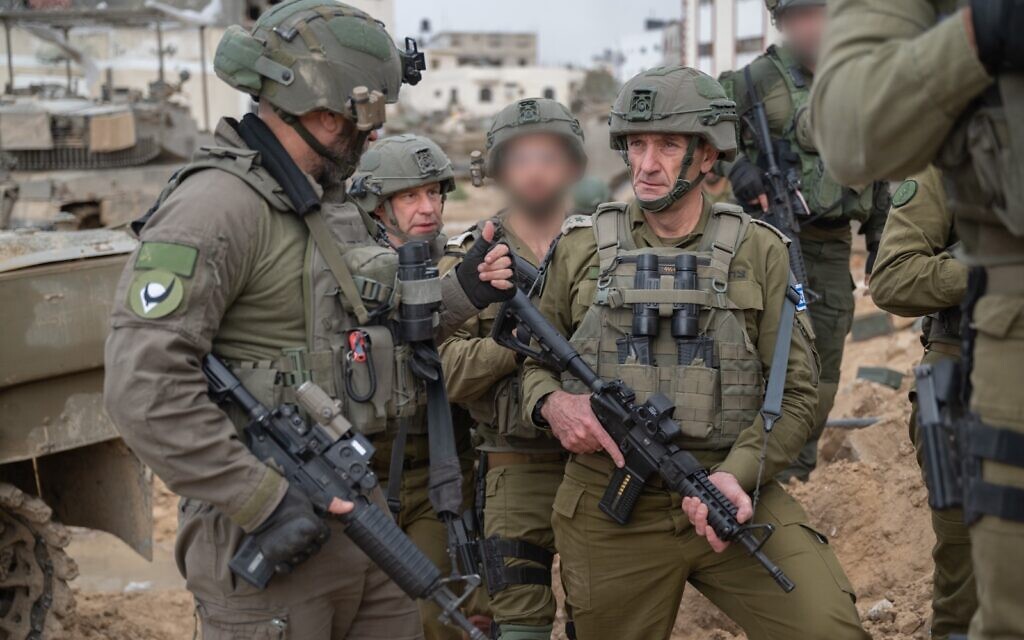
Eighty days into Israel’s war to dismantle Hamas, the cautions issued by Israeli military chiefs from the start that this will be a hard and protracted campaign are proving increasingly accurate.
The IDF is gradually taking apart Hamas’s military capabilities — significantly weakening the terrorist army in northern Gaza, where several Hamas battalions are either no longer functioning or struggling to function, destroying miles of the Hamas underworld, and expanding ground operations in both central Gaza and the Hamas stronghold of Khan Younis to the south.
But Hamas remains largely intact in the south of the Strip, none of its most prominent leaders has yet been eliminated, and its overall commander Yahya Sinwar remains confident that he and the monstrous force he has nurtured will ultimately be able to hold off the Israeli troops and survive to massacre Israelis again and again in the future.
The slaughter of 1,200 people in southern Israel on October 7 — the starting point of this war, the blackest day in modern Israel’s history, and the reason why Israel’s military forces cannot rest until Hamas is defanged — has long since receded into irrelevance internationally.
The only country that strategically recognizes the significance of October 7 — recognizes, in other words, that a life-affirming sovereign state that wants to continue to survive in the unforgiving Middle East cannot do so in the shadow of a barbaric, hugely funded terror-state neighbor — is the United States. To Israel’s existential good fortune, the US is also the country most willing and able to back Israel in this war.
Its practical military support is central to Israel’s daily capacity to fight.
And its diplomatic support was again tangibly evidenced in Friday’s binding UN Security Council resolution. At American insistence, the motion was transformed from an initial text demanding an immediate ceasefire — and thus victory for Hamas — to one seeking the means to urgently expand humanitarian aid into Gaza, and ambivalent language urging the creation of conditions to enable a future cessation of hostilities, clauses that Israel can certainly live with.
The US government is under pressure from most everywhere else on Earth. And it faces seething domestic dissent often fueled by reporting that takes Hamas claims at face value and that pays little heed to Hamas’s abuse of Gazans as human shields, and by a disinclination to distinguish between the cause and effect of a conflict that began with the mass-murdering invasion of Israel by the terrorist government next door.
US Defense Secretary Lloyd Austin (L) and Defense Minister Yoav Gallant give a joint press conference in Tel Aviv on December 18, 2023.
Yet the US administration has not set deadlines for an end to the conflict. And from President Joe Biden on down, the US has continually reiterated Israel’s obligation to destroy Hamas, so as to ensure that Israelis will not again be massacred in their homes and communities.
The president and his team have also been adamant in demanding that Israel avoid in Gaza’s south the “massive” civilian fatalities in Gaza’s north. For their part, Israel’s military chiefs have said that, in any case, they regard the challenges posed in places such as Khan Younis as requiring a different military approach. We shall see.
Israelis at this stage of the campaign are caught in a mood of some uncertainty.
The mounting losses of IDF soldiers — teens and youngsters from the standing army, and older reservists plucked from their normal lives and families and now never to return — constitute daily body blows to the national psyche. And Israelis, despite the horrors of October 7, despite the surveys showing widespread Palestinian support for that slaughter, are also not indifferent to the heavy loss of civilian lives in Gaza.
Few Israelis, one suspects, believed that the IDF would sweep relatively smoothly through a Gaza where Hamas had been preparing its defenses for a decade and a half. And most Israelis, one further suspects, would have anticipated a still higher IDF death toll.
But many would have hoped for greater IDF achievements in the targeting of key Hamas leaders. And many would have hoped, crucially, for more success in the rescuing of hostages.
As the days and weeks go by, battle fatigue is mounting, and the strain on the people’s army, the families, and Israel’s national economy and capacity to function grows inexorably.
The IDF knows that it has to gradually reduce the number of soldiers it is deploying. The top brass talks of shifting away from “high-intensity” conflict in the next few weeks. One question is whether the promised more “surgical” approach will prove effective in the south of the Strip. Another is whether the toll of IDF losses will rise if and when the tactics shift.
As so often in this inspiring and infuriating country of ours, the nation as a whole and the troops battling to ensure its survival seem wiser, more proactive and more unified than the politicians who are supposed to be leading it.
A new weekly norm is emerging in which leaked excerpts from cabinet meetings, and some critiques made in public, show ministers deeply disconnected from the grinding, complex realities of a war against an amoral and pernicious enemy. Ministers impatient for some kind of impossible knockout victory. Ministers playing personal politics, with comments that misrepresent the challenges and the realities of the war. Ministers taking public positions that risk undermining soldiers’ confidence in those who are directing them.
“Show responsibility, restrain yourselves and wait a little longer with the political campaigns and messages,” President Isaac Herzog pleaded on Sunday night. “The enemy is waiting to see chasms among us, for us to start fighting with one another.”
The danger is that revived political dissent and infighting will spread nationwide, and into the ranks of a military at war. Indeed, it sometimes feels that Israel is not only battling a timeline where it has to dismantle Hamas before the US tries to impose limitations that the IDF cannot work within, but also that it is battling to destroy Hamas before it starts tearing itself apart politically, left and right, Orthodox and secular, autocracy and democracy, as it was in the process of doing when Hamas burst in.
As the IDF turns its focus increasingly to the south, it is also looking to the very bottom of the Strip, the Philadelphi Corridor that runs 14 kilometers (almost 9 miles) along the Gaza-Egypt border.
If that border remains porous when the guns fall silent, the goal of a demilitarized Gaza from which Israel can no longer be threatened will be impossible to achieve or maintain.
Displaced Gazans wait for their turn to bake bread at the makeshift tent camp in the Muwasi area in Rafah, southern Gaza Strip, Dec. 23, 2023.
There is talk of long-term IDF deployment. Talk of the construction of a border wall, with a subterranean barrier, to prevent the smuggling of arms. And there is recognition that neither would be possible, and no other solution viable either, without coordination and cooperation with Egypt.
Israeli officials and experts give diverse assessments of Egypt’s behavior at the border since Hamas seized power in Gaza in 2007. I’ve been told by credible officials both that Hamas was able to bring in weapons and parts for weapons with great ease, and that the Egyptians greatly stepped up efforts to prevent such imports in recent years.
Other fronts are still in play, as well — with the Lebanon border boiling ever hotter. Tens of thousands of Israelis have no prospect of returning to their northern towns and communities so long as Hezbollah is at or near the border, firing accurate anti-tank missiles into dozens upon dozens of homes.
Defense Minister Yoav Gallant wanted to attack Hezbollah immediately after October 7, before the IDF took on Hamas in Gaza, but was overruled. And Israel keeps warning Hassan Nasrallah’s terror army that, one way or another, Hezbollah will be forced well back from the border, as provided in UN Security Council Resolution 1701 at the end of the 2006 Second Lebanon War.
An Israeli soldier walks amid the rubble of a house hit in a strike by Lebanon’s Hezbollah terror group, in Kibbutz Manara in northern Israel near the Lebanon border, on November 27, 2023.
But some ostensible experts, including within the military, are also suggesting that, unlike Sinwar and Hamas, with their disregard for the lives of Gazans, Nasrallah and Hezbollah feel an obligation to the well-being of Lebanon, and would not wish to see Beirut turned into rubble like Gaza City — which is what Gallant has promised would happen if Nasrallah escalates hostilities much higher.
But that kind of conception, or assessment, of course, is how we got to the catastrophic “surprise” of October 7.
In need of inspiration, Israel and those who care for us can find it in the nobility of Iris Haim, whose son Yotam Haim was shot dead together with two other hostages, Alon Shamriz and Samar Talalka, by IDF troops who mistakenly identified them as a threat on December 15 in northern Gaza.
The trio had escaped captivity, hid out for several days, and put up signs to try in vain to attract soldiers’ attention. Emerging in full view of Israeli troops, they had stripped to the waist and were waving an improvised white flag — doing everything they knew to show that they represented no danger. And yet all three were shot dead, in a tragedy that the IDF is still investigating.
Five days later, Yotam’s mother Iris recorded a message of love and forgiveness for the very soldiers who had killed him. She told them not to question themselves or their actions, that what had happened was “not your fault” but solely that of the accursed Hamas, and that “you have to look after yourselves because only that way can you look after us.”
Yotam Haim, left, and his mother, Iris Haim. Yotam was taken captive by Hamas terrorists on October 7, 2023 to Gaza.
And she invited them to visit her and the family, telling them that anyone who wanted to come would be welcome. “We want to see you with our own eyes and hug you and tell you that what you did — however hard it is to say this, and sad — it was evidently the right thing in that moment.
“And nobody’s going to judge you or be angry,” she promised. “Not me, and not my husband Raviv. Not my daughter Noya. And not Yotam, may his memory be blessed. And not Tuval, Yotam’s brother. We love you very much. And that is all.”
A member of the IDF battalion indeed visited the very next day.
What kind of extraordinary person is this? And what an obligation such humanity and spirit places upon Israel, its troops, its leaders, all of us — an obligation to wisely, and courageously, and humanely, haul Iris Haim’s country out of the depths and again make it safe.
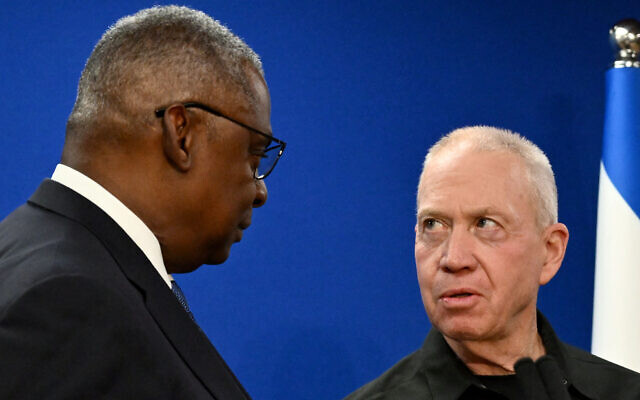
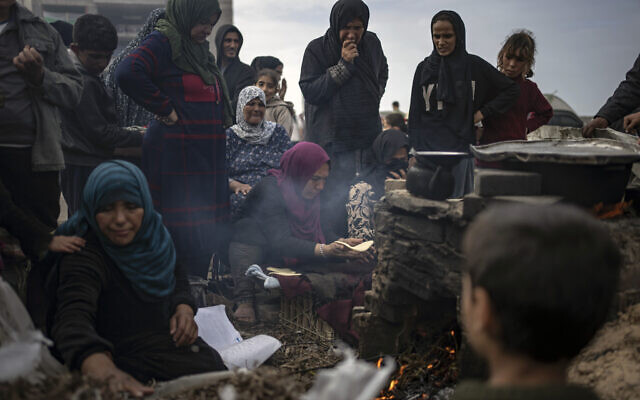
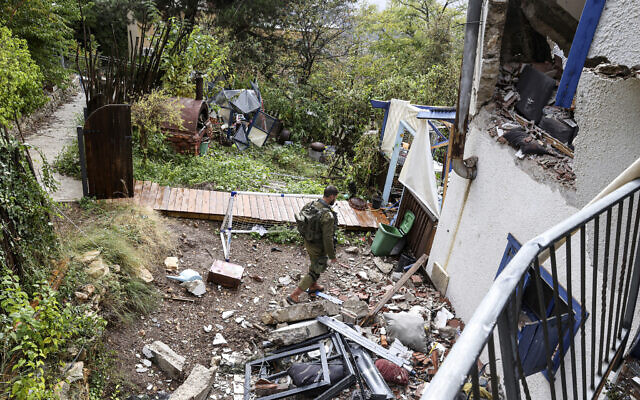
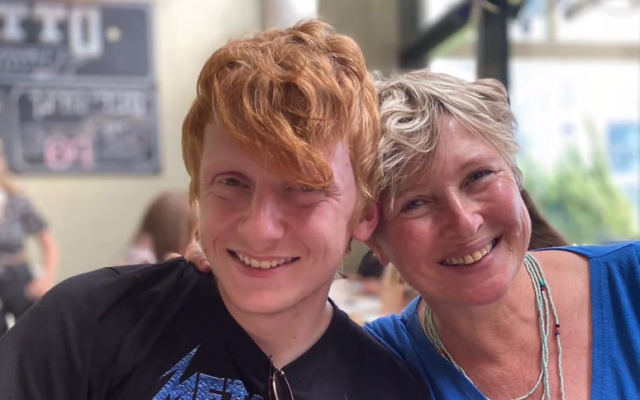
No comments:
Post a Comment